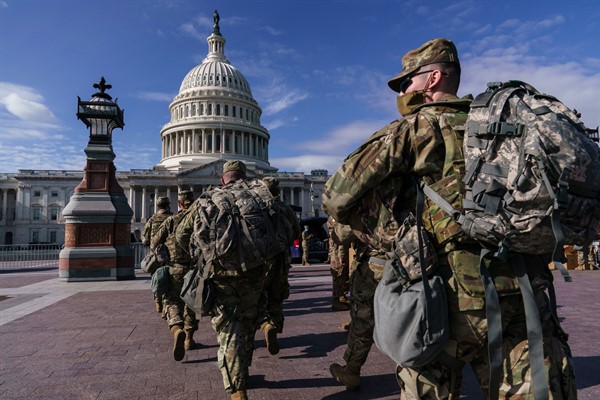When an agitated mob of extremist supporters of President Donald Trump sacked the U.S. Capitol last month, egged on by Trump and other Republican politicians, they struck at the bedrock principles in the oath that members of the U.S. armed forces swear to protect and defend the Constitution. Nonetheless, America’s uniformed military leadership waited a full week to issue a public statement directly addressing that riotous invasion of the seat of the American republic.
The statement, in the form of a memorandum to service members from the entire Joint Chiefs of Staff, was appropriately strong and concise, even if the delay in publishing it was unnecessarily long. It condemned the “sedition and insurrection” at the Capitol, mourned the police officers and others who died as a result of the riot, and reiterated the military’s commitment to “defending the Constitution of the United States against all enemies, foreign and domestic.” The statement was also a welcome, if unusual, change from the military brass’ traditional insistence on remaining “apolitical,” even though this is not the official policy of the Defense Department. This departure from the norm probably played an important role in the delay in issuing it.
Despite the conventional view that military officers should stay out of politics, scholars and practitioners such as Mara Karlin and Jim Golby have argued that the military is not—and should not be—an apolitical institution. “Military leaders need to be able to engage on political issues with their troops and with the public, and they shouldn’t shy away from a topic simply for fear of being labeled ‘political,’” they wrote recently in Task & Purpose. “We don’t want a military that is ‘apolitical’; we instead want a military that avoids partisanship, institutional endorsements, and electoral influence.”

